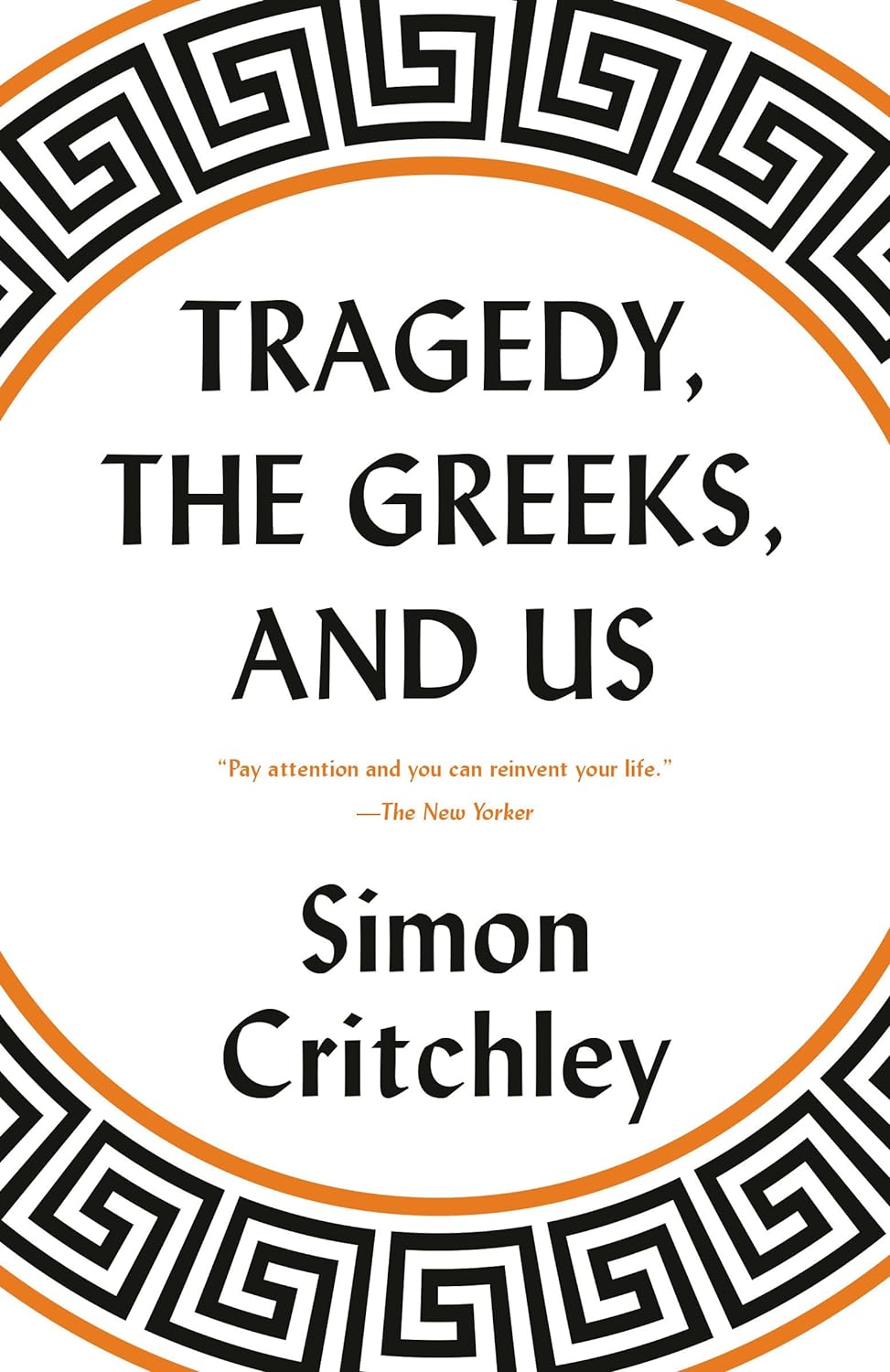This is an extremely short reading, very doable. It'll be crucial that we all do it. Plus, it'll offer you a chance to reflect on, and to review, other reading in preparation for the upcoming midterm.
Assigned Text and Access
I'm assigning the following book chapter:
Critchley, Simon. 2019. “Knowing and Not Knowing: How Oedipus Brings Down Fate.” In Tragedy, the Greeks, and Us, 12-16. New York: Pantheon Books.
Access the PDF via:
Brightspace course site > Content > Critchley: "Knowing and Not Knowing" (critchley_knowing_and_not_knowing.pdf)
Guiding Question

In the assigned reading, the author, Simon Critchley, makes a number of very broad claims about ancient Greek tragedy. Ordinarily I'd be very skeptical: How can one prove claims as broad as these in the span of a mere five pages? Of course, Critchley points out that he intends to support those claims over the course of the book's 285 pages. But we don't have time to read all those pages. Still, I think we have enough here to begin to think critically about the author's claims. So, . . .
- Based on your current state of knowledge about ancient Greek tragedy, what do you think about the author's claims?
- Speaking of which, what are those claims, the main ones?
- What in what you've read so far for this course validates those claims? What light does Critchley shed on those readings?
- What in what you've read so far for this course challenges those claims?
- Can one play, in this case, Sophocles' Oedipus the King (which we haven't read yet), somehow provide the template for all other ancient Greek tragedy?
Background Information
Critchley is a philosopher and teaches at the New School. For background on the book from which the assigned chapter comes, see its promotional webpage. For background on Critchley, see his personal website.